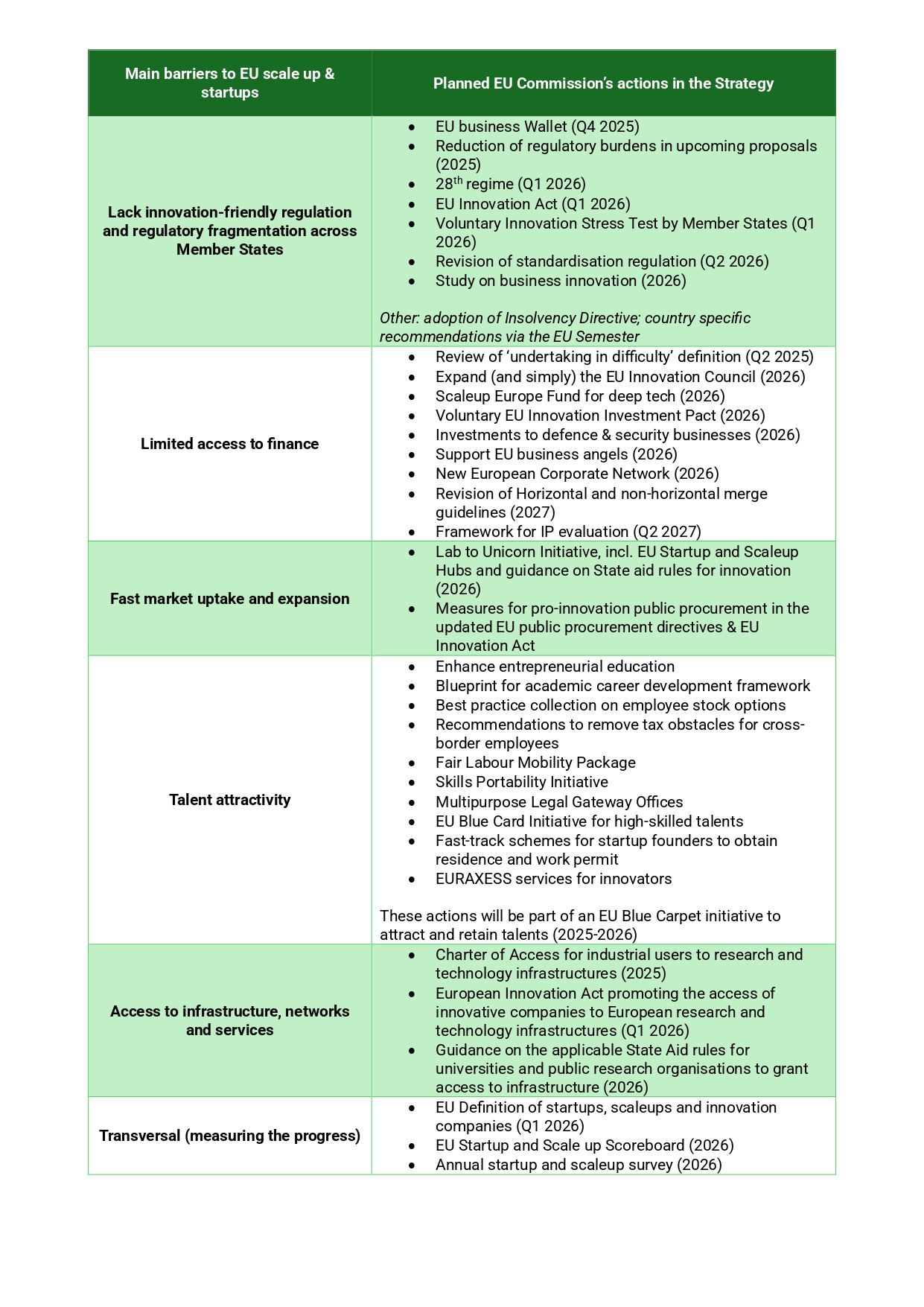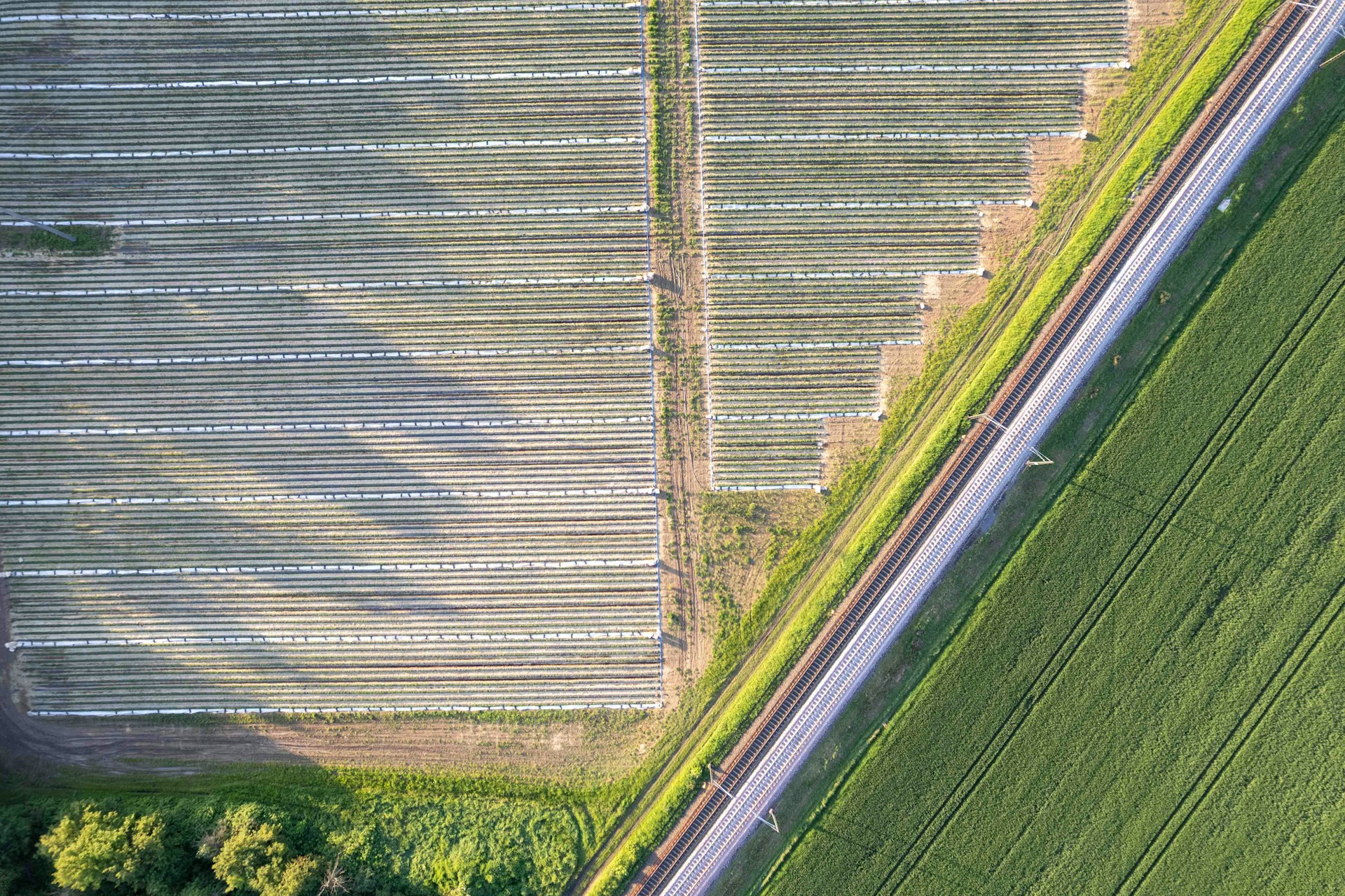By Carla Lostrangio
Innovation and competitiveness are one of the key priorities of the current EU Commission (2024-2029). This brief article provides an overview of the recently published EU Startup and Scale Up strategy and its relevance for rural innovators.
The context
The European Union hosts more early-stage startups than any other region globally, with over 35,000 companies – a figure that has quadrupled between 2015 and 2024. However, Europe’s innovative businesses are often small and fragmented, lagging behind global competitors in commercialisation and growth.
To address this, the European Commission unveiled its newest EU Startup and Scale Up Strategy. This strategy builds on the assessment of the Letta and Draghi reports, advocating respectively for a stronger EU Single Market and a more strategic approach to reduce the competitiveness gap between our continent and other global economies.
Under the leadership of the Taskforce on Startups & Scaleups within the EU Commission’s Directorate-General for Research and Innovation (DG RTD), a public consultation and hearings at the EU Parliament were held in early 2025. The aim was to gather stakeholder views on the strategy, which were then used to inform the official publication on May 28th.
The EU Startup and Scale Up Strategy
The EU Startup and Scale Up Strategy establishes a set of financial, political and regulatory actions to enhance and facilitate the growth of EU’s innovative companies and particularly to attract innovators, founders and investors to boost innovation in Europe. This strategy is part of a bigger package aimed at reducing EU’s innovation gap from other world countries, including the EU Competitiveness Compass (January 2025), the Savings and Investments Union, the “Single Market Strategy or the Union of Skills. The Strategy identified five main barriers to EU’s startups and scale ups and outlined actions to overcome them in the coming years.

Source: EU Startup and Scale up Strategy (2025)
SMARTERA contribution to the current discussion
The SMARTERA project provided feedback to the EU Commission’s consultation on the EU Startup and Scale Up strategy, launched in earlier 2025. In our contribution, we underlined challenges related to rural innovation, in particular access to finance, regulatory inflexibility, low uptake of innovative-driven public procurement. We are pleased that the Strategy successfully considers and defines credible actions to address these challenges.
Additionally, we welcome that the current strategy’s focus on boosting talent attractiveness, a critical issue in rural areas and a precondition to diversify the rural economy and pursuing the EU Right to Stay. We support the emphasis on innovation ecosystems as a way forward to an ever-evolving self-nourishing dynamic model for innovation.
However, we regret to observe that the current strategy fail to apply a place-based approach and territorial lenses to innovation (a missing link also in the EU Competitiveness Compass). Empirical evidence from SMARTERA parttners suggests that rural areas also produce young, rapidly growing enterprises in Europe (Björk et al., 2025). Other scientific findings show that some rural regions hold more than 75% of the total share of startups.
Despite this, the Strategy makes almost no reference to rural areas and geographic disparities in innovation and the structural reasons behind this gap, the Strategy also fails to align with the ongoing work of the EU’s Long-Term Vision for Rural Areas, the Smart Villages and Startup Initiative, and the CAP and Cohesion Policy’s effort on rural innovation, the Demographic Toolbox and EU Talent Booster Initiative.
We also note with regret that the current strategy fails to argue why ‘big’ is better. In doing so, the Strategy risks adopting a one-size-fits-all approach, overlooking the specificities of economic sectors or specific forms of innovation that are unlikely or do not deem to scale up, such as the social economy, certain forms of social innovation or community-led innovation.
Read more about our reply to the public consultation
Ph by Bernd Dittrich





